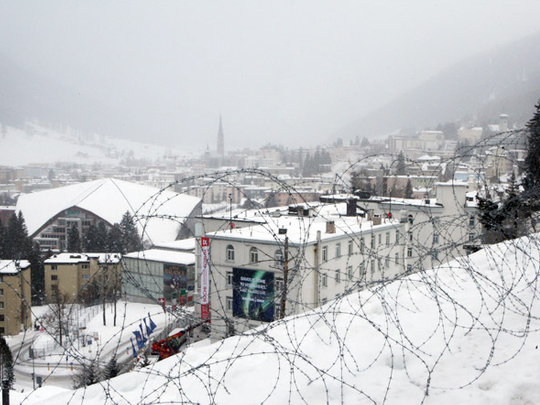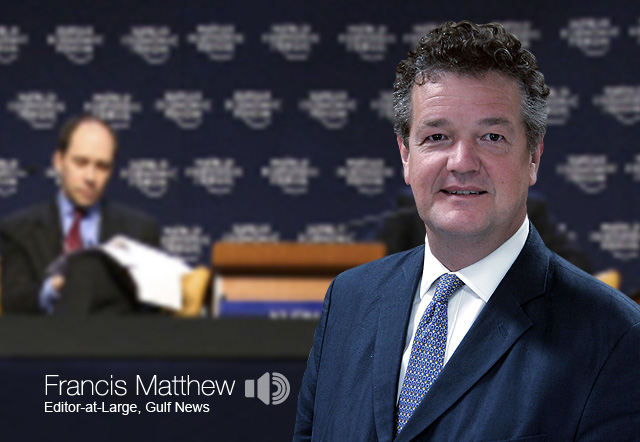
Why do 2,500 of the world's self-appointed Brightest and Best agree to let themselves be closed away in Davos in the Swiss mountains for five days?
It is exceptionally cold; many of the meetings outside the main congress are spread out around the village and require walking through snow and ice to get there; and a gruelling schedule means that it is certain that wherever you are, there is always something happening somewhere else.
The reason that the World Economic Forum works is because it mixes government officials, academics and other thinkers, and private sector companies.
These three very different sectors rarely have the opportunity to discuss ideas in an open manner. And the five days are important because it gives all sides the chance to meet several times: formally and informally, and so move their ideas forward.
Joined up thinking
That said, it still is tough on the brain. It is hard to remain intelligent and positive for five whole days! However, it helps a lot that there are so many Big Ideas floating around that when one runs out of steam on saving the financial system, it is easy to join the discussion on climate change and sustainable energy.
When that palls there is the long running debate on the almost-forgotten Millennium Development Goals to reduce poverty, enabling the poor of the world to find better opportunities and more economic security.
And then there is the fascinating discussion on how the world is no longer dominated by two super-powers, or even one mega super-power.
The new multi-polar world is not yet very coherent, but already looks far more stable and balanced as no one nation is able to dominate the world, particularly after the Obama administration has made quite obvious that it has rejected the Bush administration's attempts to do so.
The multi-polar thinking pops up in all sorts of debates. The G8 association of the rich nations has given way to the more inclusive G20. The former G77 of the world's poorer nations suffered a breakaway group in Copenhagen when the BASIC group (Brazil, South Africa, India and China) emerged as these nations found that they needed to take a stronger lead on climate change and force Europe and the US into action.
Power of beauty
The theory (and often the practice) of what happens in Davos is that it becomes clear how all these various issues depend on the each other. Reducing poverty needs strong economies, and strong economies need social cohesion, and everyone needs global warming to stop.
Read special coverage on the World Economic Forum
Despite the hectic schedule, and the constant sense that you have to keep running from place to place and meet more people for really important conversations, the stunning beauty of the Swiss mountains in winter does have an effect on the soul.
During the day, it is important to take the time to stop for a few seconds (not too long, otherwise you freeze) and look up to the sharp outlines of the rocky mountains, totally covered in deep white snow, and their lower steep slopes covered in vivid green pine trees.
The mountains have their own sense of wonderful permanence, and the complete contrast with most delegates' home environments reinforces a sense that something different must be possible.
Enough of that! Keep walking, and on to the next meeting!
Are you following the World Economic Forum? Which debate interestes you most? Will this forum help in solving the problems of the world economic crisis?













